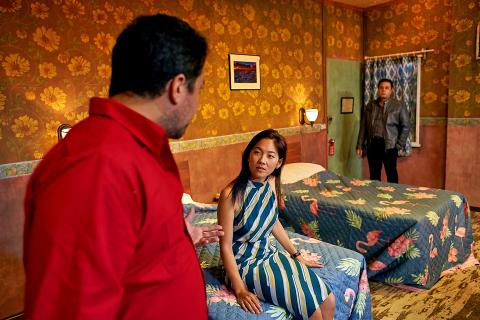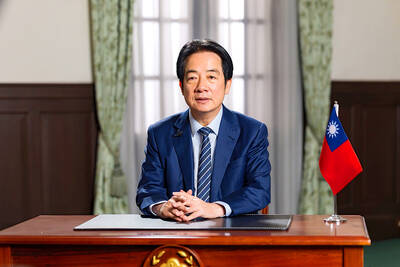In today’s world of “grab ‘em by the ...” and the #MeToo movement, you never know what might be dredged up from the past, especially if its on tape.
The mere mention of names like Roger Ailes, Harvey Weinstein Matt Lauer, Michael Cohen or Stormy Daniels guarantees strong reaction. And that’s why Brook Hall has chosen Butterfly Effect Theater’s season finale with Stephen Bilbur’s TAPE.
Hall says he likes a play that “starts a discussion,” and TAPE is sure to do that.

Photo courtesy of JAMIE OSHO MACTOGRAPHY
The play features Jon, an aspiring filmmaker, who hooks up with high school best friend, Vince, a volunteer fireman who makes his money selling drugs. Jon’s new film is being shown at a festival in Lansing, Michigan, and Vince has come from California to see it.
However, Vince has other motives. He harbors resentment that Amy, a girl they both dated in high school, told him that Jon date-raped her and wants Jon to fess up. Jon admits some guilt and then discovers Vince taped this and has also invited Amy, now an assistant district attorney in the Lansing Justice Department, to join them. And Amy has a few thoughts of her own.
This is a play where motives, memory, truth and perception of the past are all grist for the mill as these three rehash a 15 year-old incident.
In choosing TAPE, Brook wanted something “on the other side of the world from recent, Diary of Anne Frank and something that “speaks to today’s headlines and issues, particularly sexual assault.”
Brook had worked for US writer-director Richard Linklater in Austin, Texas and after seeing his award-winning filmed version of TAPE with Ethan Hawke, Uma Thurman and Robert Sean Leonard, this play became a must on his bucket list of shows.
So what really happened 15 years back? Well, you’ll have to see the play.
Due to subject matter, no children under 16 are admitted without an adult guardian.

This month the government ordered a one-year block of Xiaohongshu (小紅書) or Rednote, a Chinese social media platform with more than 3 million users in Taiwan. The government pointed to widespread fraud activity on the platform, along with cybersecurity failures. Officials said that they had reached out to the company and asked it to change. However, they received no response. The pro-China parties, the Chinese Nationalist Party (KMT) and Taiwan People’s Party (TPP), immediately swung into action, denouncing the ban as an attack on free speech. This “free speech” claim was then echoed by the People’s Republic of China (PRC),

Exceptions to the rule are sometimes revealing. For a brief few years, there was an emerging ideological split between the Democratic Progressive Party (DPP) and Chinese Nationalist Party (KMT) that appeared to be pushing the DPP in a direction that would be considered more liberal, and the KMT more conservative. In the previous column, “The KMT-DPP’s bureaucrat-led developmental state” (Dec. 11, page 12), we examined how Taiwan’s democratic system developed, and how both the two main parties largely accepted a similar consensus on how Taiwan should be run domestically and did not split along the left-right lines more familiar in

Many people in Taiwan first learned about universal basic income (UBI) — the idea that the government should provide regular, no-strings-attached payments to each citizen — in 2019. While seeking the Democratic nomination for the 2020 US presidential election, Andrew Yang, a politician of Taiwanese descent, said that, if elected, he’d institute a UBI of US$1,000 per month to “get the economic boot off of people’s throats, allowing them to lift their heads up, breathe, and get excited for the future.” His campaign petered out, but the concept of UBI hasn’t gone away. Throughout the industrialized world, there are fears that

The Democratic Progressive Party (DPP) controlled Executive Yuan (often called the Cabinet) finally fired back at the opposition-controlled Legislative Yuan in their ongoing struggle for control. The opposition Chinese Nationalist Party (KMT) and Taiwan People’s Party (TPP) acted surprised and outraged, but they should have seen it coming. Taiwan is now in a full-blown constitutional crisis. There are still peaceful ways out of this conflict, but with the KMT and TPP leadership in the hands of hardliners and the DPP having lost all patience, there is an alarming chance things could spiral out of control, threatening Taiwan’s democracy. This is no